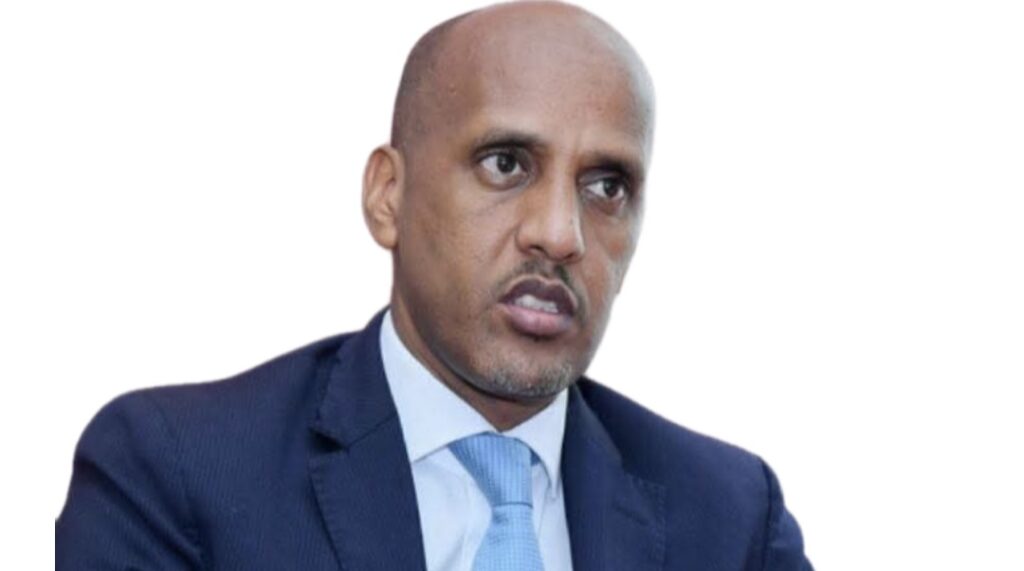Mekelle፡Telaviv, Nairobi, Pretoria, London, (Tigray Herald)
Collapse or Recovery?
The Battle for Ethiopia’s Economic Narrative
Divided Leadership, Struggling Citizens-Ethiopia Faces a
Deepening Crisis as Truth and Solutions Remain Uncertain
By:Azim Hussein
In a sobering statement delivered in Nairobi, President Mustafe Muhumed Omar of Ethiopia’s Somali Regional State declared that the Ethiopian economy has “collapsed.”
Speaking to members of the Somali diaspora, he blamed a severe financial crisis for his government’s inability to implement
previously announced development projects. According to Mustafe, the federal
treasury is completely empty, and the country is facing an unprecedented
economic breakdown.

His comments have raised serious concerns about the true state of Ethiopia’s economy and exposed divisions within the leadership.
Contrasting Views: President Mustafe vs. Prime Minister
Abiy Ahmed
President Mustafe’s claims stand in sharp contrast to those made by Prime
Minister Abiy Ahmed, who has repeatedly insisted that the Ethiopian economy is
growing and stable.
In public speeches and official reports, Abiy has painted a picture of economic recovery, citing progress in agriculture, manufacturing, and infrastructure development.
However, the situation on the ground tells a different story. Inflation is soaring,
the national currency is weakening, and basic goods are becoming increasingly
unaffordable for ordinary citizens. The gap between government statements and
everyday reality continues to widen.
A Complex Crisis: Conflict, Environment, and Global Shock
Once considered one of Africa’s fastest-growing economies, Ethiopia now faces a complex crisis brought on by years of conflict, environmental disasters, and
global economic shocks.
The war in the Tigray region, which began in 2020, devastated communities and drained national resources. It also disrupted trade,
discouraged foreign investment, and left the country deeply divided.
Ongoing droughts, food insecurity, and the lingering effects of the COVID-19
pandemic have only worsened the situation. In this context, Mustafe’s statement
may not be an exaggeration but rather a reflection of growing frustration among
regional leaders.
Political Tensions Within the Prosperity Party
The contradiction between Mustafe and Abiy reveals deeper political tensions within the ruling Prosperity Party. Although the party was created to promote national unity and economic reform, its leadership now appears fragmented.
When a senior figure like Mustafe, who sits on the party’s executive committee,
publicly contradicts the prime minister, it suggests a lack of internal unity and
confidence. Regional states are feeling increasingly isolated as they struggle with
economic hardship and limited support from the federal government.
The Reality for Millions of Ethiopians
For millions of Ethiopians, the debate over whether the economy has collapsed is
more than political rhetoric-it is a daily reality. People across the country are dealing with job losses, fuel shortages, rising prices, and a declining quality of life.
Trust between citizens and the federal government is eroding, especially when
national leaders deliver such conflicting messages. Many are left to rely on their
own experiences to determine the truth, rather than the words of politicians.
The Urgent Need for Action
Ultimately, the question is not just whom to believe-Mustafe or Abiy-but what
concrete steps will be taken to address the crisis. Without honest dialogue,inclusive governance, and urgent reforms, Ethiopia risks further economic collapse and deeper political instability.
The time for political posturing has passed. What the country needs now is
decisive leadership, national unity, and a clear plan for recovery.
Azim Hussein is a freelance writer and governance advocate based in Jigjiga Somali region.




